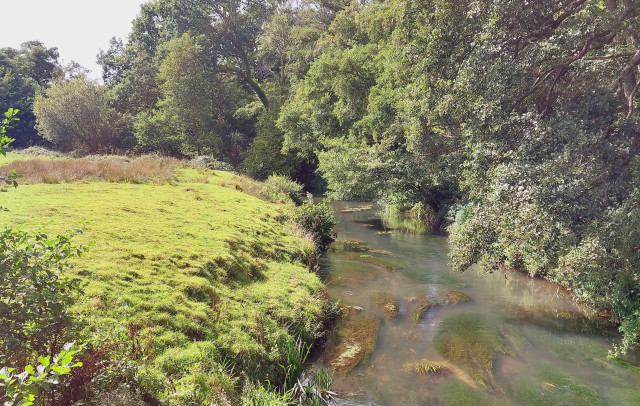Independent Water Commission Report is released
The most comprehensive review of the water sector since privatisation has just concluded, with the resulting report makes 88 recommendations. Having reviewed the report from the Independent Water Commission we are especially pleased to note the following points which, if well-executed, would have significant impact on the streams and rivers of our catchment, and those who love them.
Extracts from the Summary Report are below.
The Catchment Based Approach
Recommendation 3: A comprehensive systems planning framework should be introduced for England and Wales with responsibility for integrated and holistic water system planning. In England, the systems planners should be regional – or ‘regional water authorities’. In Wales, the systems planner should be a national authority.
Under this recommendation the review concludes that ‘catchment partnerships should be reinforced and formally feed into regional planning decisions’, and that existing catchment-based approaches should be enhanced and integrated into the framework. Catchment funding should be increased’.
We know that the catchment-based approach works, but it is critically underfunded. We currently receive just £16.50 per km2 from the government to undertake the catchment-based approach and safeguard our rivers. Our Arun and Western Streams Catchment Partnership is formed of 64 people from 29 organisations with a wealth of knowledge and expertise. We know we can do more to transform our rivers with greater investment.
WFD Regulations and Public Health
Recommendation 11: The UK and Welsh governments should consult on reforms to the WFD Regulations, including broadening the scope to include public health outcomes
We were interested to note this paragraph ‘the Commission believes there is a strong case for the inclusion of outcomes for public health and amenity value in certain water bodies, alongside ecological and chemical quality. This would recognise the importance and growth in the recreational use of water in England and Wales and associated public health risks.’
This would be especially pertinent for the Arun, which many people use for recreation including paddle sports and swimming. Our rivers should be swimmable, and it’s wonderful to see this specifically acknowledged in the recommendations.
A New Regulator
Recommendation 16: The UK government should establish a new integrated regulator in England. This should combine the functions of Ofwat, Drinking Water Inspectorate, and water functions from the Environment Agency and Natural England.
We know that often the objectives of these regulators are at odds, creating a confusing picture and meaning that action for our rivers is held back and dogged in bureaucracy. Bringing them together into one could mean a combining of holistic objectives for our water environment, to ensure it delivers the ecosystem services we need, whilst also ensuring we look after it to the very highest standard.
Abstraction
Recommendation 36: The Commission recommends the UK and Welsh governments improve regulatory oversight of water industry abstraction activity by bringing it under the Environmental Permitting Regime.
The report further explains that ‘A transition to the Environmental Permitting Regime should strengthen abstraction regulation, helping to tackle unsustainable abstraction. It would also provide a more flexible mechanism to support growth and water resources delivery’.
Unsustainable abstraction is threatening the very existence of rivers, including in our catchment, the precious river Ems, a rare and special chalk stream. Measures to tackle unsustainable levels of abstraction cannot come soon enough.
Water consumption
Recommendation 37: The UK and Welsh government should accelerate efforts to reduce household water consumption by introducing compulsory smart metering for a wider range of circumstances.
More details on this include the acknowledgement that ‘The use of smart water meters has been shown as a key tool in managing demand’ and the recommendation of ‘greater deployment of compulsory smart meters’.
Development
One of the most significant threats to our rivers comes from development. We see pollution incidents and decreasing water quality, as underperforming wastewater treatment works discharge gallons and gallons of sewage out into our rivers. Often the treatment works just don’t have the capacity to treat all the water they receive, especially as we develop ever more houses. But the crazy thing here is that water companies are not a statutory consultee on development - they don’t have a say on where, when and how many homes are developed – the new development must be connected to their network and they must deal with all the resulting sewage.
So we were pleased to see this recommendation, which if enacted would allow for more dialogue and proactive planning between local authorities, developers and water companies.
Recommendation 72: The role of water companies in the planning process in England should be strengthened to ensure they have sufficient sight and influence over upcoming developments. The ‘right to connect’ should be reviewed.
The report goes on to say ‘In England, planning authorities are required to develop Local Plans that set out a 15-year outlook for local development. The Commission believes that water companies should be included within a ‘requirement to assist’ with the development of those Local Plans. The Commission believes water companies should have a clear ability to comment on planning applications above a certain threshold in England. The UK Government should consider whether this should be as a statutory consultee, or through a ‘requirement to notify.’ This is to ensure water companies can deploy site specific technical advice and avoid delays. Finally, the UK government should conduct a review of the ‘right to connect.’ This obliges water companies to connect new domestic water supplies upon request, regardless of network capacity and any lack of advanced notice. The UK government should undertake an assessment of whether it is appropriate to provide for circumstances where a water company can object to a request, for example, when there is insufficient network capacity.’
We welcome this report that, if enacted and well-executed, could transform the water sector, and in turn help to transform our water environment for future generations. We now look to government to begin the process of enacting these recommendations, and hope that they commit to do so swiftly. We must not wait to safeguard the future of our rivers.

